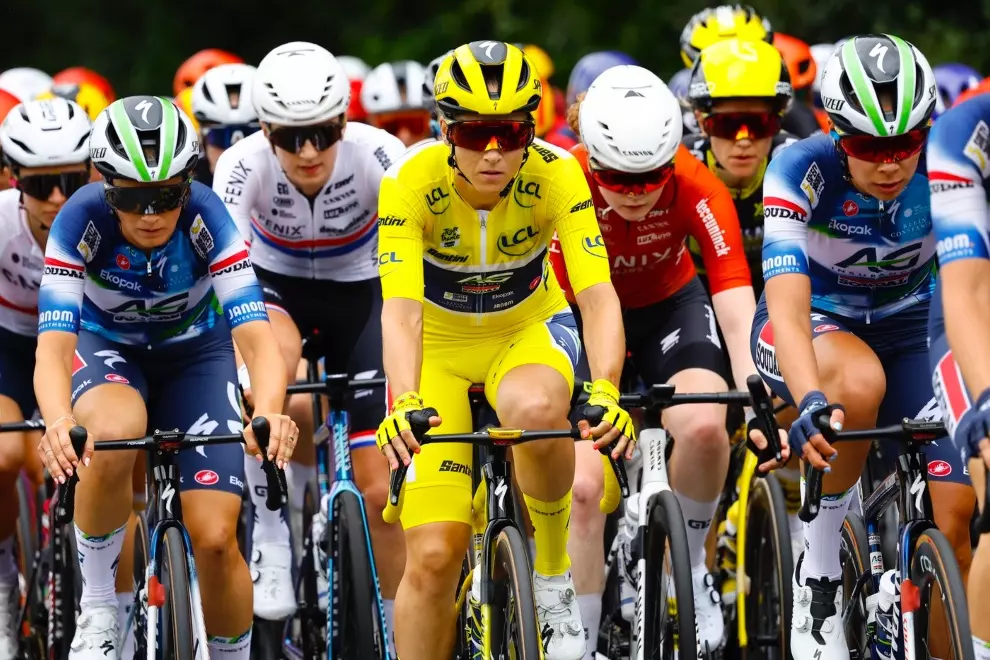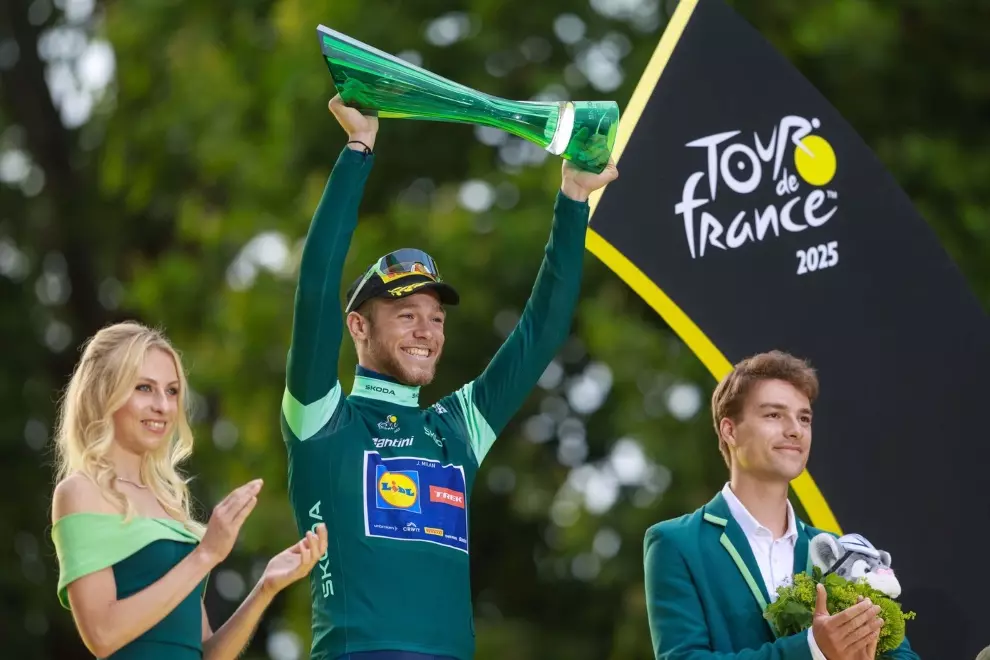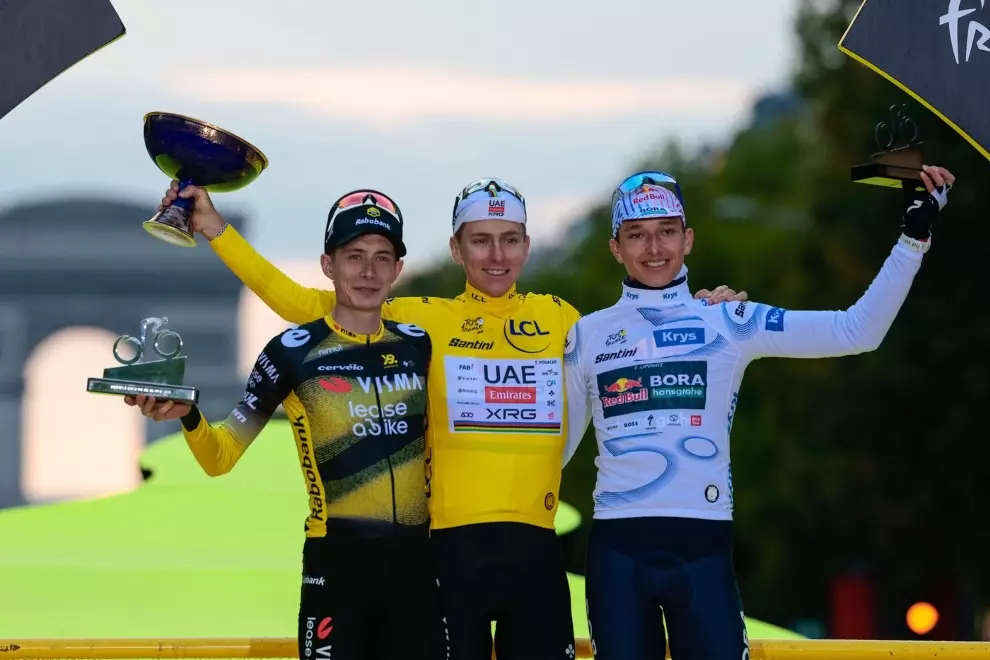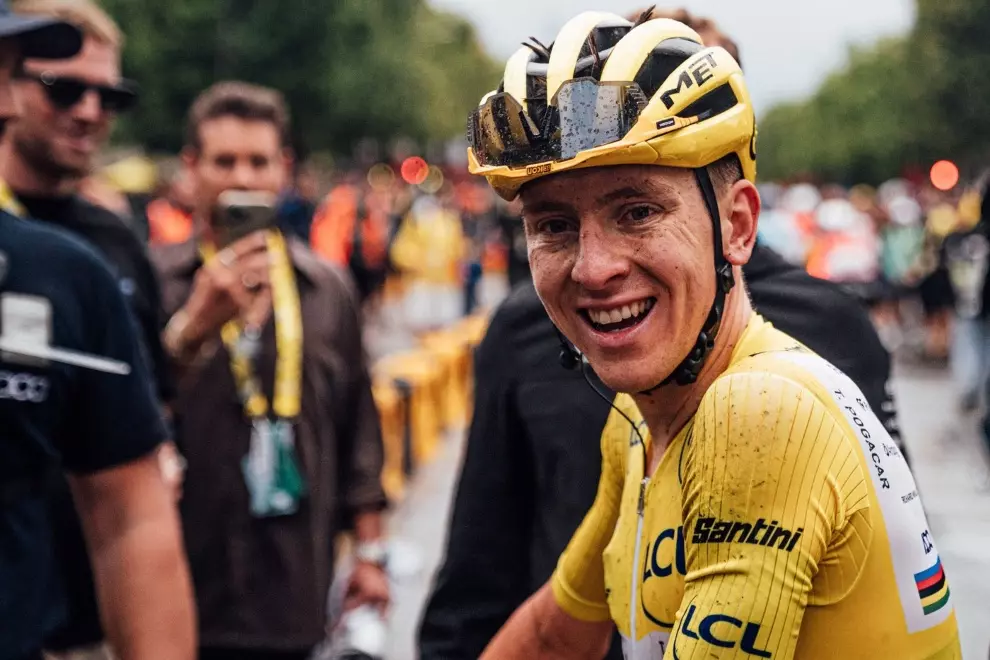We started the interview with the team captain, Francesco Gavazzi.
What qualities do you think are essential for a successful team captain, and how have you developed these skills over your career?
A successful team captain must maintain a clear and composed mindset, even in complex and chaotic situations. They need to be able to manage the team effectively and decisively when necessary. A captain should also have a holistic vision of the team, often prioritizing collective goals over personal ambitions.
Can you provide an example of a critical decision you made as team captain during a previous race that positively impacted the team’s performance?
Decisions in cycling must be made in fractions of a second, which requires clarity and experience. In the Giro, two notable incidents come to mind: one involved Alba (Vincenzo Albanese) joining the breakaway on the stage of Genoa. On the radio, I yelled for a minute straight telling them it was the right breakaway, and in fact they made it to the finish. In another instance, during the stage in Veneto, I insisted on staying ahead with Fortu (Lorenzo Fortunato) in front of Poggio. On the descent, as the group broke we stayed in the front 50.
How do you balance your own ambitions and goals with the overall objectives of the team, and how do you support your teammates to achieve their individual goals?
As a captain, it’s crucial to prioritize the team’s needs over personal desires. However, there are still opportunities for me to pursue individual achievements. The team always comes first.
Many of my teammates are fifteen years younger than I am, and I view them as younger siblings. In the hectic and stressful world of cycling, it’s common for them to feel disheartened after setbacks. A captain’s role is to communicate, provide a listening ear, and offer support during these difficult times.
We also talked to the General Classification (GC) contender, Lorenzo Fortunato.

Can you provide an example of a key moment in a previous race where your team’s support was instrumental in your GC performance?
In a previous race, my team’s support was crucial during the beginning of a climb. They ensured I was well-positioned at the front of the group. Additionally, in cases of punctures or mechanical failures, having teammates ready and nearby to assist me was vital.
How do you handle the pressure and expectations that come with being a GC contender, both from yourself and from the team?
Rather than feeling burdened by pressure, I find it motivating and morale-boosting.
How do you maintain focus and resilience over the course of a three-week race, especially during difficult stages or setbacks?
I think is important to stay calm both in the race and after the race, not to get caught up in the excitement or mood swings. I always tell myself, “Don’t get excited when you go fast, and don’t get depressed when you go slow.” Plus, I believe that by the third week, my opponents will be tired, which helps me stay focused and resilient.
We were also interested in the perspective of a sprinter specialist, which lead us to Vincenzo Albanese.
What physical and mental attributes make a successful sprinter?
A successful sprinter possesses fearlessness and clarity of mind when handling high speeds at the front of the pack.
How do you maintain your motivation and focus during stages that may not be suited to your sprinting, such as mountain stages?
During stages with significant elevation gain, I maintain the same level of determination and concentration as in sprints. I stay motivated by thinking about the upcoming stages that will be more suited to my strengths as a sprinter.




